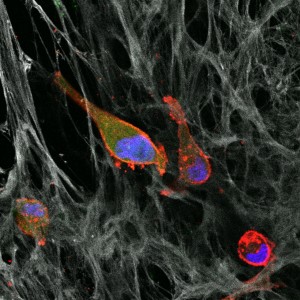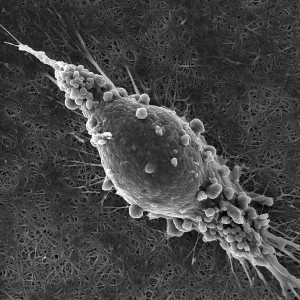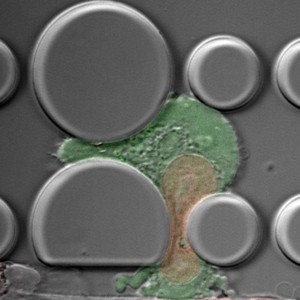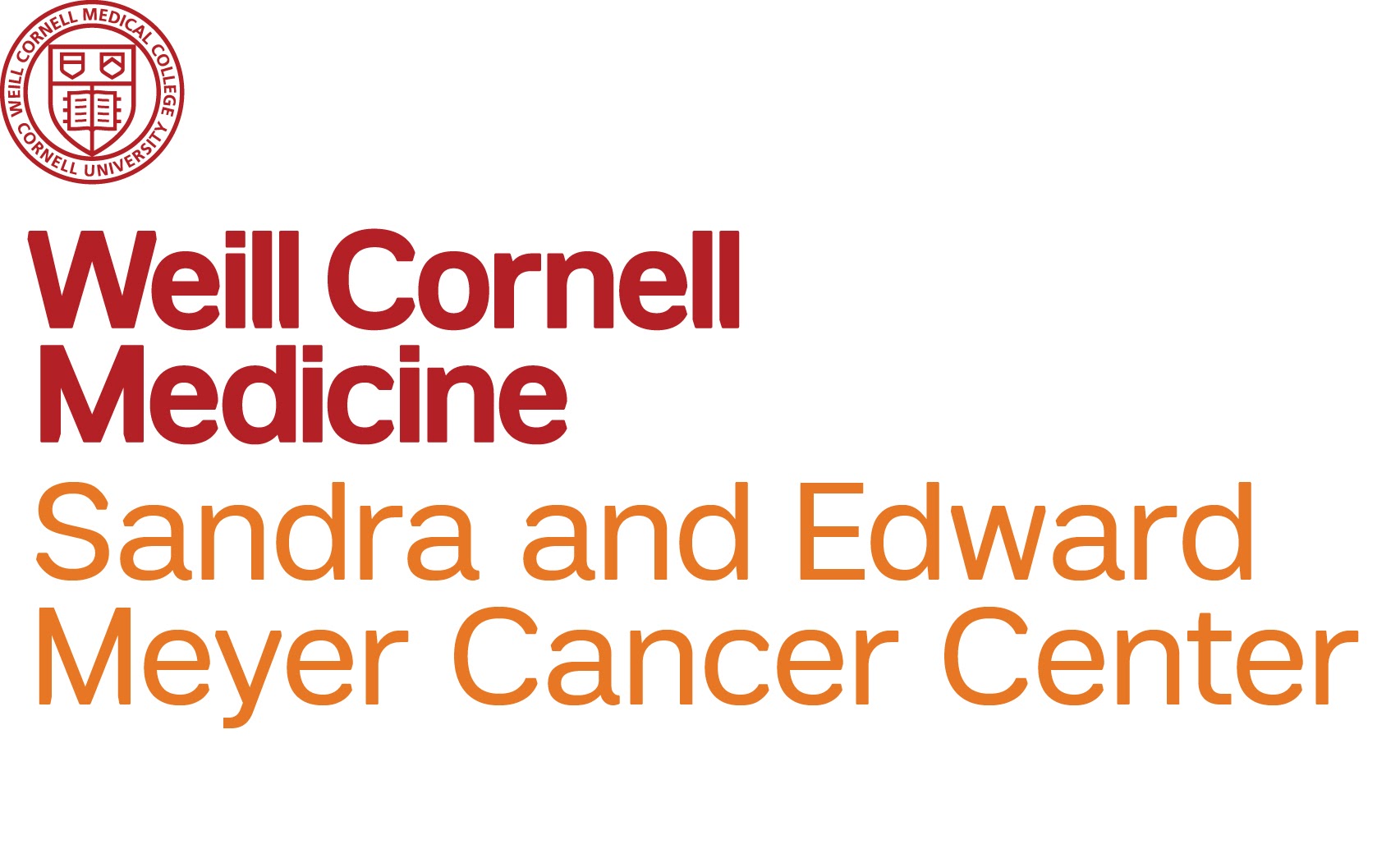The Cornell Center on the Physics of Cancer Metabolism integrates engineering, advanced imaging, and cancer biology to interrogate the multiscale biophysical mechanisms regulating tumor metabolism and function as well as their consequences on clinical outcome.



Center Overview
Despite advances in breast cancer treatment, metastatic disease remains incurable and is of particular concern in patients with triple negative breast cancer. Both aberrant metabolic signaling and physical properties of the microenvironment have been independently defined as hallmarks of cancers, and experimental evidence suggests that they may be functionally linked. However, the current lack of physiologically relevant culture models that capture relevant physical details prevents studying the specific mechanisms that link metabolic reprogramming, the physical microenvironment, and clinical outcomes of malignancy. By leveraging capabilities of five different institutions the Cornell Physical Sciences Oncology Center (PSOC) will interrogate the multiscale biological and physical (structural, mechanical, and solute transport) mechanisms regulating tumor metabolism and function, as well as the consequences on tumor development, metastatic progression, and therapy response. The new physical sciences-driven mechanistic insights that will be generated by our PSOC promise to inform a more integrated approach to the prevention, diagnosis, and treatment of breast cancer.
Participating Institutions
Cornell University
 Cornell University
Cornell University
Ithaca, New York
14850(607) 254-4636
Meyer Cancer Center @ Weill Cornell Medicine
 Weill Cornell Medicine
Weill Cornell Medicine
1300 York Avenue
New York, NY 10065
Memorial Sloan Kettering Cancer Center
MD Anderson Cancer Center
 MD Anderson Cancer Center
MD Anderson Cancer Center
1515 Holcombe Blvd
Houston, TX 77030
University of California San Francisco
 University of California San Francisco
University of California San Francisco
513 Parnassus Ave
San Francisco, CA 94143-0456
